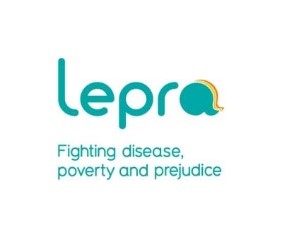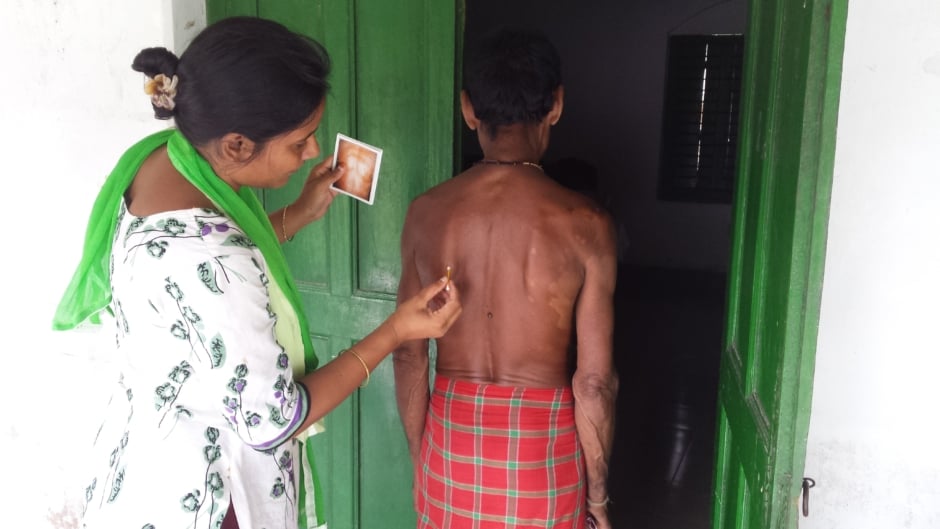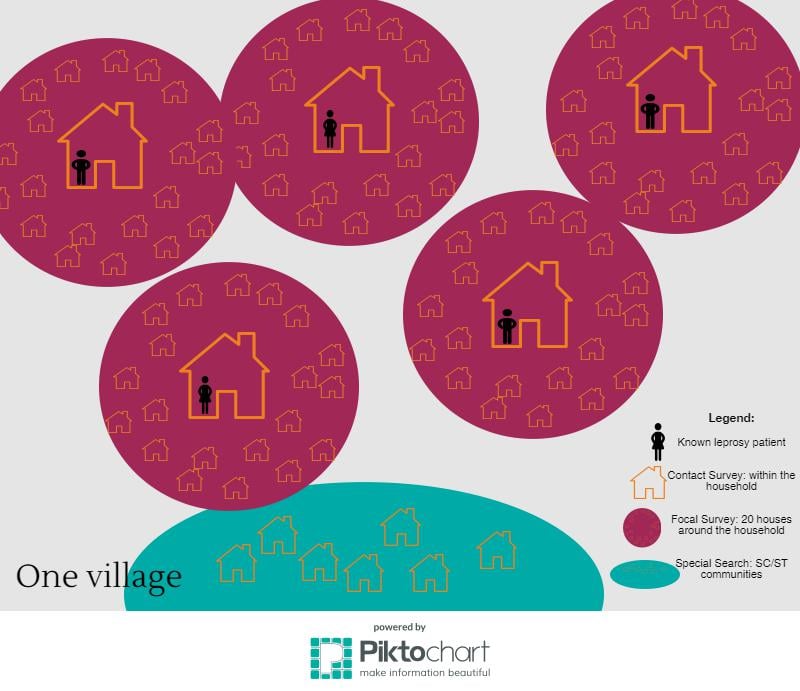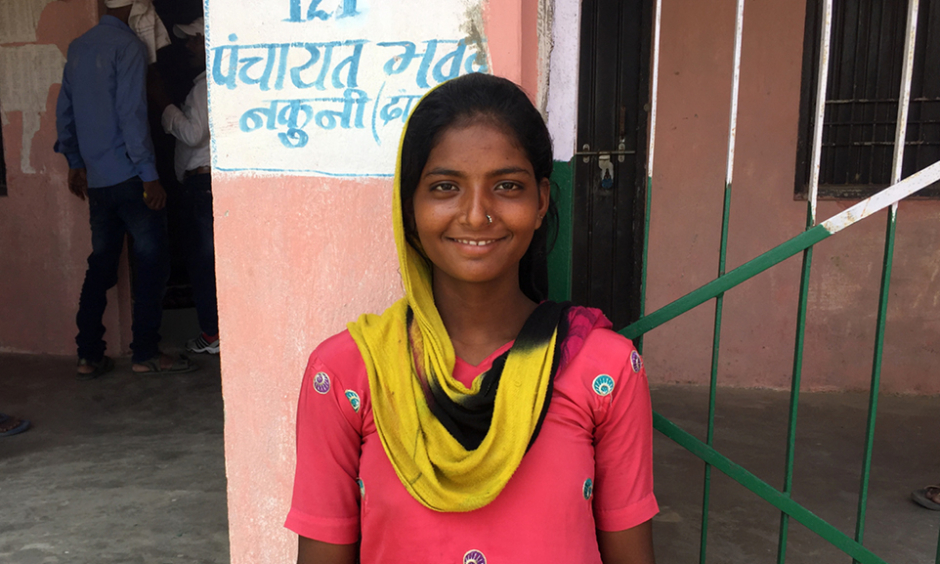Colchester, United Kingdom, 05 March, 2018
 Ahead of International Women’s Day, 8th March, UK-based leprosy charity, Lepra has published new research which found 30% more women living with leprosy in Bihar, India, than the Indian government.
Ahead of International Women’s Day, 8th March, UK-based leprosy charity, Lepra has published new research which found 30% more women living with leprosy in Bihar, India, than the Indian government.
Evidence suggests that gender inequality in leprosy endemic countries is one of the main barriers preventing women accessing treatment. This leaves them at greater risk of developing life-changing disabilities.
Rukmini Rao, Chair of Lepra in India comments:
“In India, there are many cultural barriers which prevent women from accessing healthcare. They often have to wait for permission from their husband or guardian to access medical help and they are unable to be examined by a male doctor alone. Many also fear the consequences of a leprosy diagnosis, which can lead to abandonment, unemployment, loss of their home, or even access to their children.”
There is no evidence to suggest men are more susceptible, however, national data reported in 2017 shows that over 58%1 of cases that were diagnosed in Bihar were men. The organisation believes more men are found as they do not face gender inequality that prevents them from seeking treatment.
The research, published in December 2017,2 shares the results of enhanced screening surveys conducted across Bihar. The number of cases found in Lepra’s survey suggests as many as 30% of women may be missed in the official government programmes.
The enhanced screening surveys were conducted by predominantly female Community Champions in areas with a high prevalence of leprosy, including tribal and marginalised areas. The charity found that female health workers were able to visit and examine women in their homes, overcoming some barriers preventing access.
Rokdiya, aged 14 from Bihar was found in the enhanced screening survey. She says:
“I developed patches a few years ago, but, I was too scared to seek treatment as I was worried about stigma. I was so afraid because my father lost his right eye to leprosy. I was found through the screening survey, where a Lepra health worker visited my home to check me for symptoms. I am now receiving the cure but I won’t tell anybody that I have been affected by leprosy as I am worried that I will be treated differently.”
Lepra wants to up-scale its enhanced screening surveys to diagnose and treat more women living with leprosy. The organisation is asking the public to hold life-changing tea parties to raise funds to help train more female Community Champions so that more women can be screened for the disease and provided them with the treatment they urgently need.
To find out more visit https://www.lepra.org.uk/life-changing-tea

About Lepra
Lepra is a UK-based international charity that has been working to beat leprosy since 1924.
Leprosy affects millions of the most vulnerable people in the world, causing life-changing disabilities and attracting extreme stigma. But there is a cure.
The charity works to beat leprosy in India, Bangladesh and Mozambique by finding, diagnosing and treating people affected by the disease.

By raising awareness, pushing for early detection and supporting people living with disabilities caused by leprosy, Lepra works towards a day when this disease no longer destroys lives. In 2016-2017, the charity reached 252,000 people through diagnosis, treatment and care. It reached a further 1.3 million people through health education and events to raise awareness of leprosy and other neglected diseases.
Find out more about Lepra on its social media channels:
Facebook: https://www.facebook.com/LEPRAHealthinAction/
Twitter: https://twitter.com/Lepra_HinA
Contacts
- Fiona Graham (Communications Officer)
Email: [email protected]
Tel: + 44 (0)1206 216 710
References
- Data sourced from 2016 – 2017 annual report from the National Leprosy Eradication Programme (NLEP) http://nlep.nic.in/data.html
- Research published in Leprosy Review: Enhanced active case-finding, identifying leprosy cases missed by recent detection campaigns in Munger District, Bihar, India https://www.lepra.org.uk/platforms/lepra/files/lr/Dec17/Lep452-462.pdf







